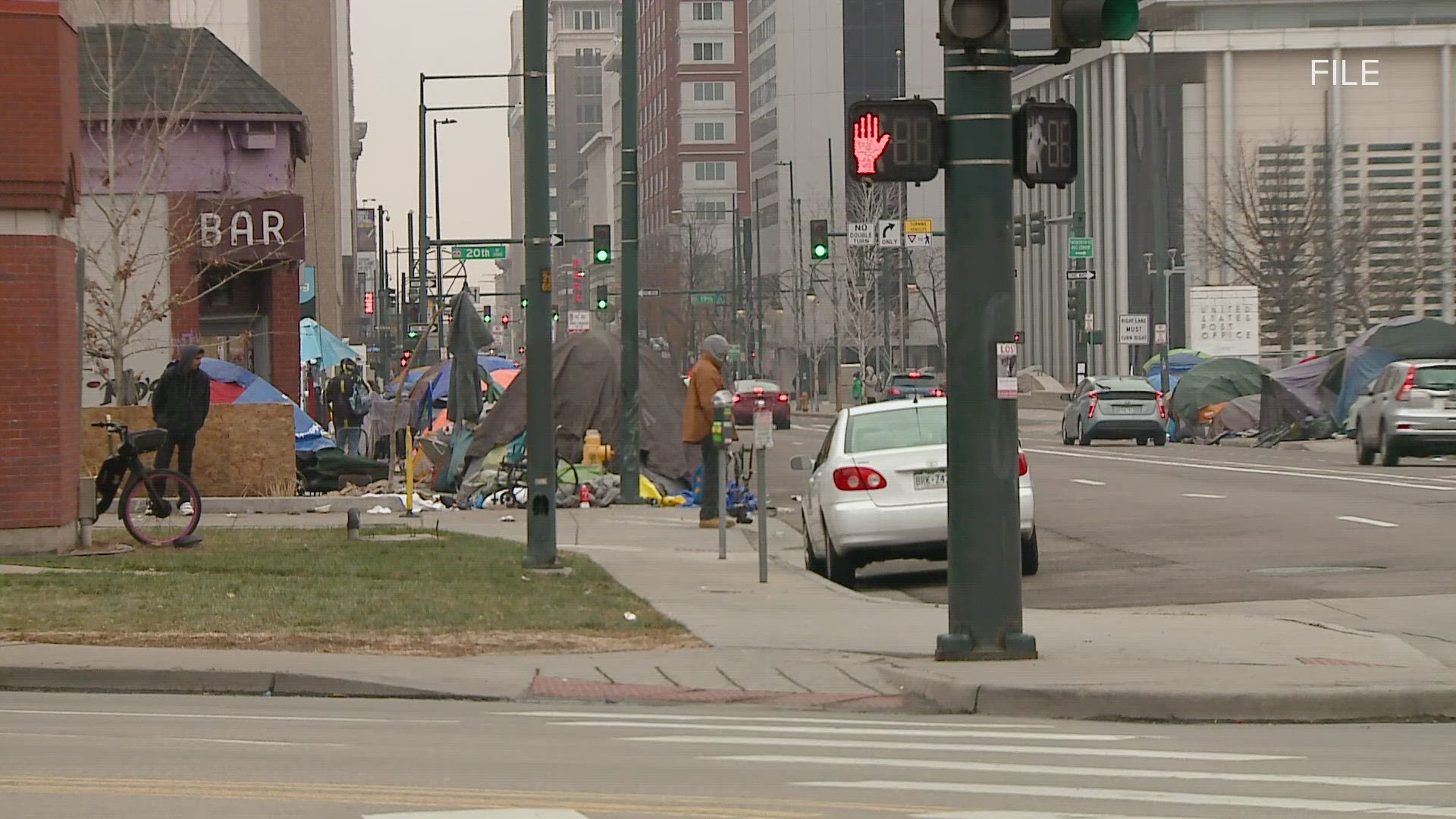DENVER — Temperatures are plummeting.
The Denver area is forecast to have sub-zero wind chill temperatures for more than 80 hours straight as an Arctic front blasts through the state.
"The human body was not designed for these types of extreme arctic temperatures," said Dr. Payal Kohli, 9NEWS Health Expert.
The air isn't just unpleasant but bitterly cold, even deadly.
"In a cold snap like this, we will expect to see people lose toes, sometimes lose fingers, noses and ears can be in jeopardy. And hypothermia can be life-threatening," said Dr. Eric Lavonas, an emergency physician at Denver Health. "Every year we have a few, unfortunately, we have a few people freeze to death in Denver,"
Lavonas said as freezing temperatures settle in, they're bracing for a busy weekend in the ER. This cold is dangerous, he said, especially for those on the streets.
"So the people at most risk are the members of our community who are unhoused," Lavonas said. "It's very cold, the wind is going to be blowing and it's very easy to become hypothermic or have frostbite. Something as simple as a dry pair of socks can mean the difference between keeping your toes and losing them."
When it comes to frostbite, that can settle in within minutes.
“Frostbite progresses through just a sensation of being cold and then being painful and then being numb," Lavonas said. "And it’s very important if you’re starting to recognize that frostnip on your fingers and toes that you get covered up and get someplace warm immediately."
Keeping fingers and toes warm and covered up is key.
If you do experience frostbite, Lavonas said to run water that's slightly warmer than room temperature over it.
“Rewarming frostbitten tissue with hot water causes inflammation and the tissues actually don’t heal as well as if it’s rewarmed a little bit more gradually. So use water that it’s a little warmer than body temperature, baby bottle warm," he said.
The other problem in this extreme cold is hypothermia.
In cold weather, the body's temperature can drop to deadly levels.
"Hypothermia can be very fatal," Kohli said. "Hypothermia effects all of our organs, because again the organs are very tightly regulated. So, if you start to cool down the body too much, you can actually affect the heart function, the lung function, the kidney function, the electrolytes in the body, you can affect the acid level of the body and that can cause disfunction all across. So you can very quickly have a cardiac arrest from hypothermia."
And even inside, those who are older can still be at risk for hypothermia if they're not keeping their home or apartments as warm as usual.
"You think about older people, if they run their heater a little bit lower, they’re actually at even higher risk of hypothermia because as we get older, we don’t regulate our body temperature in the same way. We also don’t generate heat in the same way. So the older people not only are not aware that they’re starting to get hypothermic, they’re actually not able to have the compensatory mechanisms in place to generate some of that heat," Kohli said.
Cold weather can impact the body in other ways, too.
Kohli said the cold dehydrates us and our thirst mechanism is impaired in the cold, making it so we don't feel as thirsty. That can put people at risk for severe dehyrdration.
Kohli said heart attacks become more common when it's cold out. And frigid temperatures can make it hard to breathe for those with respiratory issues, even exercise-induced asthma.
“You can also have cardiac and respiratory complications that occur as a result of the cold weather," Kohli said. "We know that heart attacks are actually more common when it’s cold out because the cold can actually trigger more inflammation in your body."
If you can, stay inside. If you can't, dress in layers and make sure those clothes are dry. Try to take breaks from the cold or seek shelter if you can.
And look out for others. If someone needs help, call.
"We're here to help," Lavonas said. "But prevention is a lot better than cure."
On Thursday, Gov. Polis issued a disaster declaration as this dangerously cold weather moves through the state. That will allow the national guard and state emergency management to help out and offer resources to communities.
The state is opening up a number of shelters if you or someone you know needs a warm place to go.
The state offered a list of warming shelters across Colorado, including:
List as of Jan. 11 at 7 p.m.
- United Way Cold Weather Shelter: 870 28th St., Greeley - Shelter
- Guadalupe Center: 1442 N 11th Ave., Greeley - Warming Center
- Catholic Charities: 460 Linden Center Dr., Fort Collins - Shelter
- Murphy Center: 242 Conifer St., Fort Collins, Friday-Monday: 8:00am - 5:00pm - Warming Center
- Jefferson County: Multiple Shelter Locations Posted to Severe Weather Shelter Network website
- Thornton: Call Community Connections HOTline at 720-977-5900 for locations
- Denver: Denver Navigation Campus (former Doubletree hotel) and New Directions (former Best Western hotel) overnight from 7 p.m. to 7 a.m. and city recreation centers (in designated areas only) and libraries will be also available as warming centers during normal operating hours.
- Boulder: Locations listed on the City of Boulder website.
The City of Lakewood directs people to the Severe Weather Shelter Network, run by churches across Jefferson County.
SUGGESTED VIDEOS: Colorado Climate

